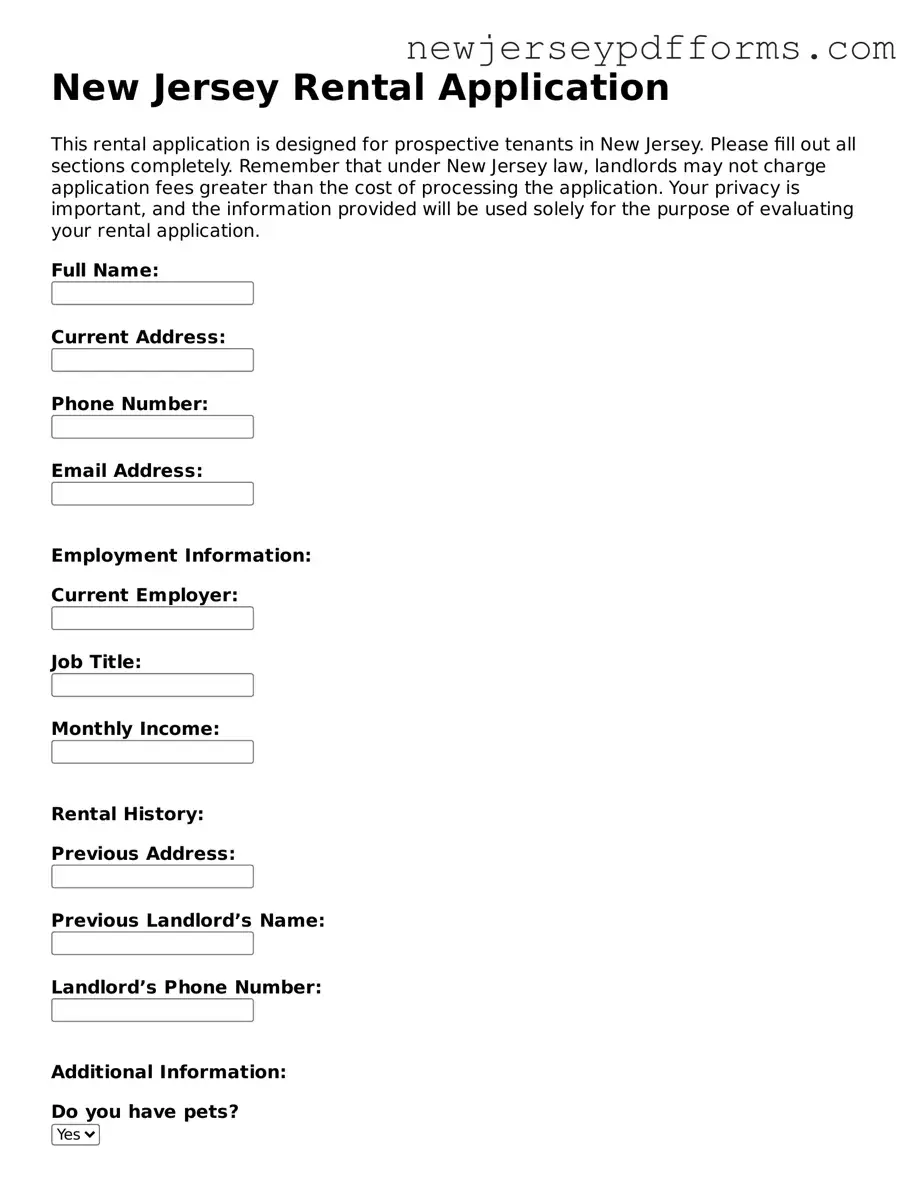What is a New Jersey Rental Application form?
The New Jersey Rental Application form is a document used by landlords to gather information from prospective tenants. This form helps landlords assess the suitability of applicants based on their rental history, income, and other relevant factors.
What information is typically required on the application?
Applicants usually need to provide personal details such as their full name, contact information, and Social Security number. Additionally, the form may ask for employment history, income details, rental history, and references. Some landlords may also request consent for a background check.
Is there a fee associated with the rental application?
Yes, many landlords charge an application fee to cover the costs of processing the application, including background and credit checks. The fee amount can vary, so it is important to ask the landlord about their specific charges.
Can I get my application fee back?
In most cases, the application fee is non-refundable, even if the application is denied. However, it is advisable to confirm this with the landlord before submitting the application.
How long does it take to process a rental application?
The processing time can vary depending on the landlord or property management company. Typically, it may take anywhere from a few days to a week. It’s best to ask the landlord for an estimated timeline when you submit your application.
What happens if my application is denied?
If your application is denied, the landlord is usually required to provide a reason. Common reasons for denial include poor credit history, insufficient income, or negative rental history. You have the right to request a copy of your credit report if it was a factor in the denial.
Can I apply for multiple rental properties at once?
Yes, you can apply for multiple rental properties. Just be aware that each application may require a separate fee and different information. Make sure to communicate with each landlord about your applications.
Do I need to provide references on the application?
Most rental applications do ask for references. These can include previous landlords, employers, or personal contacts who can vouch for your character and reliability as a tenant. It’s a good idea to inform your references beforehand.
What should I do if I have a criminal record?
If you have a criminal record, it is important to be honest on your application. Some landlords may consider your record, while others may not. Be prepared to explain the circumstances and show how you have moved forward since then.
Can I negotiate the terms after submitting my application?
Once you submit your application, it is generally considered final. However, if you have specific concerns or requests, you can communicate them to the landlord. They may be willing to discuss terms, especially if they are still in the process of reviewing applications.

